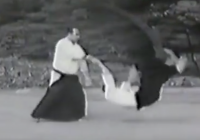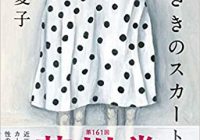Category Archives: culture
Japanese Women’s Literature Book Release: “Downfall and Other Stories” by Hayashi Fumiko
Thoughts on Mochitsuki 2020 (a Japanese festival in Portland)
A brief introduction to Noh theater, one of the oldest forms of theater
Noh, written using the character 能 (meaning “ability”), is a style of classical Japanese theater that combines elements of drama, dance, and music. What is considered Noh theater today was established around 600 years ago in the 14th century, although some of its fundamental elements are over 1000 years old.
Why is grass (草) used in Japanese to mean something is funny?
The interaction between languages over time can be interesting to follow. Words get imported from one language into another, and meaning often changes, from subtle to drastic ways. New words can even be formed using a composite of words from two languages. For various historical reasons, in the last few decades the Japanese language has… Read More »
Ukemi: Aikido and the art of rolling with the punches
Japanese novel review: “The Woman in the Purple Skirt” (“むらさきのスカートの女”) by Natsuko Imamura (今村夏子)
The other day I stopped by the Kinokuniya bookstore in Beaverton, Oregon, and stood before the bookshelf of hardcover Japanese fiction as I tried to figure out what to read next. I ended up choosing “The Woman in the Purple Skirt” (むらさきのスカートの女) by “Natsuko Imamura” for two reasons: it had won the prestigious Akutagawa prize… Read More »
Interesting Japanese loanword “マウンティング” (mauntingu, a.k.a. “mounting”)
Anyone who studies Japanese for even a short time knows there is a huge number of loanwords, and there seems to be more being coined every day. While they come from a bunch of world languages, yappari many are from English. This is both a blessing and a curse. If the word sounds like its… Read More »
Classical Japanese poetry translation: “The Forgotten Garden” (廃園) by Yoshinobu Morikawa (森川義信)
Despite the many prose translations I’ve done, I’ve never attempted to translate an entire poem from Japanese to English before. That’s partially because I generally don’t read poetry that often (in either Japanese or English), and hence am even less comfortable trying to translate it. Another reason is that generally I’m pretty picky about what… Read More »









